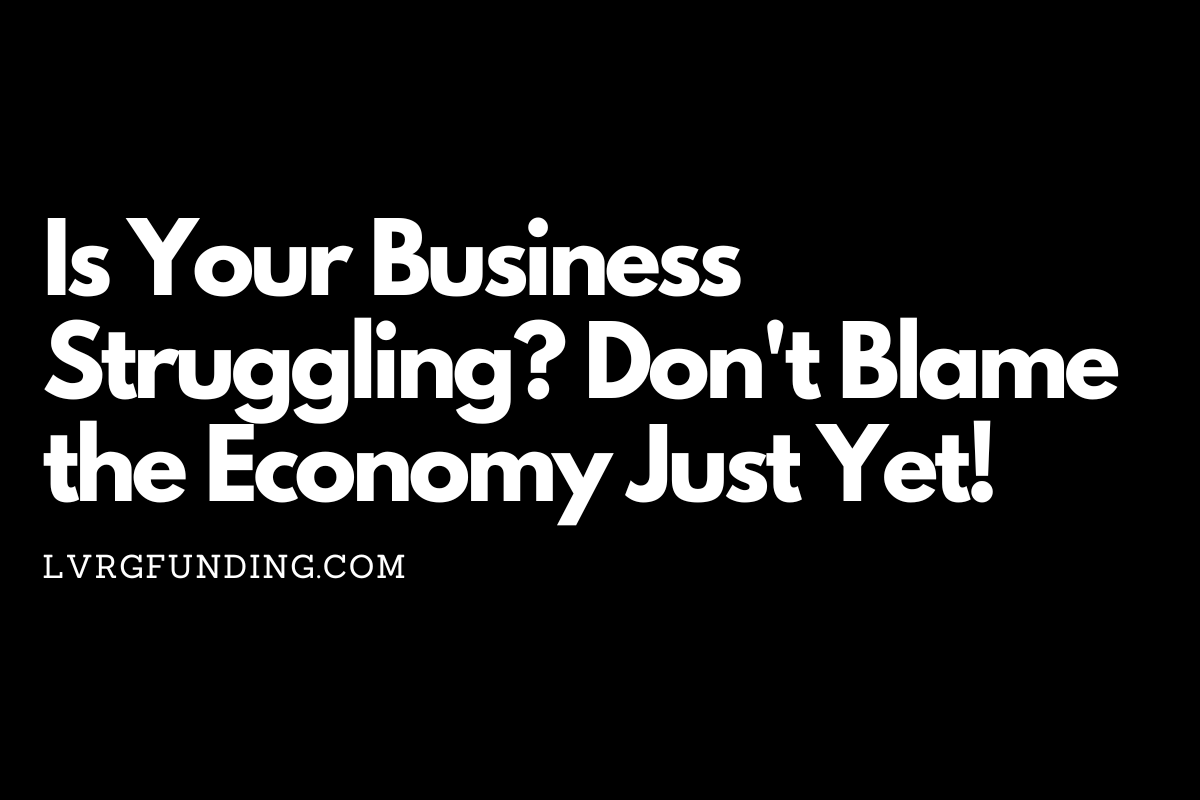Is Your Business Struggling? Don't Blame the Economy Just Yet!
In the world of business, it's easy to point fingers and attribute the struggles we face to external factors beyond our control. One of the most common scapegoats is the economy. However, it's important to recognize that while economic conditions can impact businesses, they may not be the sole reason for your struggles. Instead of immediately blaming the economy, it's vital to dig deeper and consider other factors that may be contributing to your business's difficulties.
1. Internal Management and Strategy:
Before attributing your business's struggles to the economy, take a closer look at your internal management and strategic decisions. Are your processes efficient? Is your team working together effectively? Are your goals and objectives clear? Poor management and ineffective strategies can hamper business growth, regardless of economic conditions. Reflect on these aspects and identify areas for improvement.
2. Customer Retention and Satisfaction:
Customer satisfaction is essential for the success of any business. If your customer retention rates are declining or feedback indicates dissatisfaction, it's time to evaluate your customer service efforts. Poor customer service, lack of innovation, or failure to meet changing consumer demands can lead to a decline in sales, regardless of the economic climate. Assess your customer interactions, gather feedback, and seek opportunities for improvement.
3. Marketing and Branding Strategies:
Your marketing and branding strategies are crucial for attracting customers and differentiating your business from competitors. Ineffective marketing efforts, outdated branding, or failure to adapt to changing digital trends can result in stagnant growth. Analyze your marketing campaigns, digital presence, and overall brand image to identify areas that need revitalization. Investing in marketing strategies that align with current market trends may help you overcome economic challenges.
4. Financial and Operational Efficiency:
Efficient financial management and operational processes are key elements of a successful business. Poor cash flow management, excessive overhead costs, or outdated operational protocols can hinder growth and profitability, regardless of the economy. Review your financial statements, identify areas of inefficiency, and implement cost-cutting measures to improve your financial standing.
5. Competitive Analysis:
Businesses operate within competitive landscapes. Failing to adapt to changing market dynamics and falling behind industry trends can result in decreased market share. Conduct a comprehensive competitive analysis to understand what your competitors are doing differently. Identify their strengths and weaknesses and leverage that information to enhance your own business strategies.
While the economy can undoubtedly impact your business, it is essential not to solely blame external factors for your struggles. By evaluating internal factors such as management, customer satisfaction, marketing, finances, and competition, you can identify areas for improvement that may directly address your business's challenges. By taking a proactive approach and focusing on what you can control, you can work towards overcoming your business struggles and fostering growth, regardless of the economic climate.
Written by Charles Barr, CEO of LVRG Funding

